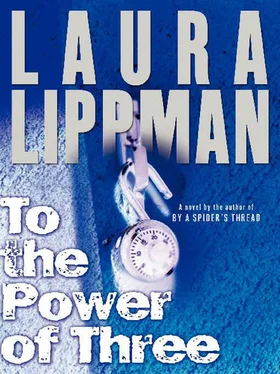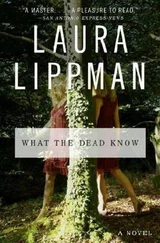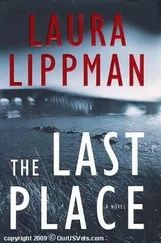Defiantly, he left the foyer and wandered the first floor. Given its age, the old farmhouse was a quirky place, in some ways the polar opposite of the homes that Glendale ’s architects had designed and refined over the years. Its rooms were small, the ceilings low, the pine floors almost wavy with age. It was, in short, lousy with charm-beamed ceilings, plaster walls that made it a bitch to hang anything, a huge kitchen with a stone fireplace. While other families gathered in the “great rooms” that were endemic to all the Glendale homes, no matter the price range, the Hartigans themselves had spent most of their time in this kitchen/dining room, not unlike the families who had lived here since it was first built in the late 1700s.
And it had been redone, Dale realized with a start. Redone at great expense. New cupboards of wide-planked pine paneling, with the same finish on the dishwasher and the refrigerator, a design trend he loathed. Why should appliances be forced to disappear from the kitchen in this trompe l’oeil scheme? Chloe also had installed a new freestanding sink, although “new” was a bit of a misnomer, for the piece was an antique, cleverly reworked. In fact, Dale had seen this very island at Gaines McHale, a high-end antique dealer that also trafficked in custom-mades. “Trafficked” was the right word, for it was a pricey place, more ruinous than a cocaine addiction for Baltimore ’s décor freaks. At Gaines McHale such a piece would cost at least twenty-five hundred dollars. Perhaps this was the reason Chloe had ordered Dale to stay in the foyer. She didn’t want him to know how much money she was spending, even as she was bitching about how hard it was to make ends meet.
The portrait of Kat, in all its tacky glory, still dominated one wall over the dining room table. The painting had been his Christmas gift, the year Kat turned ten. (Chloe was wrong about that. Kat was definitely ten, not eleven.) Behind his back, Chloe had hired a society painter, someone best known for painting dogs. But the painter was technically quite skilled, and her work usually appreciated in value. Unfortunately, she had let Chloe call the shots on Kat’s portrait, and the result might as well have been painted on black velvet and offered at one of those starving-artist sales at the flea market.
In the painter’s version, a falsely thin Kat was imprisoned in a white ruffled dress, quite unlike anything she had ever worn in real life, posed amid the ruins of some ancient civilization. But while the landscape was ominous and foreboding, the sky above it was cloudless blue, marred only by the yellow of a kite flown by Kat. If the painting had been the work of some addled religious zealot or prison inmate without any training, it would have been a masterpiece of outsider art, suitable for the Visionary Arts Museum. As it was, it was simply an embarrassment, a reminder that Chloe’s membership in the bourgeoisie was an eternal high-wire act.
Chloe picked up on Dale’s horror the moment he unwrapped it. He tried, he really tried, to pretend to the emotions that would make Chloe happy, but she had always been quick to see through him.
“What’s wrong with it?” she demanded, not even waiting until Kat was out of earshot. She never waited.
“Nothing,” he said. “It’s beautiful. I’m just overwhelmed that you and Kat managed to keep a secret such as this.”
“It took almost a whole year,” Kat said, studying the painting. “I had to go for sittings every week.” Dale’s stomach clutched a little as he tried to figure out the cost of such an extravagance. (He was still working for his father then, and earning less than he might, for Glen was receiving the exact same salary for doing nothing.) It wasn’t that he begrudged Chloe the money, just that such an expensive gift demanded to be hung in a prominent place, where everyone would see it.
“It’s beautiful,” he said, adding, with far more sincerity, “ You’re beautiful. But you’re even more beautiful in real life than you are in this picture.”
A week later, on New Year’s Day, Chloe looked up from her checkbook and said, “I need ten thousand dollars.”
“What on earth for?”
“The painting. I put the deposit on my credit card and carried the balance month by month, so you wouldn’t know. But now that you’ve got it, I can pay it off.”
“That painting cost ten thousand dollars?”
“She sometimes gets as much as fifteen thousand. It was a deal.”
“And you carried ten thousand dollars on your credit card for twelve months, incurring finance charges?”
“Don’t be stingy. It was only, like, a hundred or two hundred a month. I cut some things out to make up for it.”
“Such as…?”
“Things. What do you care? It was for you. It was all for you.”
Chloe began to cry. They had been married long enough by then that the effect of these lusty tearfests, as Dale thought of them, was not as great as it once was. Still, he hated to see Chloe cry, if only because she seemed so dangerous and out of control.
“I wasn’t being critical, Chloe. Or ungrateful. It’s just that…ten thousand dollars is a lot of money for a painting, and the finance charges probably added another thousand dollars to the cost.”
“It’s a work of art. It’s one of a kind. You can’t put a price on things like that.”
“And yet someone did.” He thought his droll remark might undercut the tension in the room, but Chloe’s fury only escalated.
“What’s that supposed to mean?”
“Nothing. It was a lovely idea. I just think that whenever you consider spending that much money-whether it’s for a gift for me or something for the house-we should talk about it.”
“You don’t like it,” she wailed.
And because this was back when Dale still lied to spare his wife’s feelings, he swore that he did. But Chloe was not stupid. She realized that she had erred, made one of those mistakes in judgment that revealed the gap between her roots and her aspirations. Brought up in Colorado, in hardscrabble circumstances, Chloe was terrified of being seen as tacky or déclassé. Her solution had been to study newspapers and certain magazines, then throw money at the things she thought could transform her into a natural-born member of the upper middle class. Nine times out of ten, she got it right, winning praise for her clothes, her hair, and especially the house. But every now and then she suffered a costly misstep, a bitter reminder that she was faking it. Since the divorce it had been a relief to hear of such things secondhand, usually through Kat. Once, just once, Dale had stepped in and warned Chloe that aboveground swimming pools were banned by Glendale ’s covenants. (And how glad he was to have that excuse, rather than be faced with trying to explain to Chloe the real reasons they were undesirable.) Otherwise he no longer had to pay the price, figuratively or literally, for Chloe’s errors in judgment.
“I told you to wait in the hall,” Chloe said, coming into the kitchen as if she had been looking for him everywhere, mail in her hand.
“I always liked the view from here.” He pointed to the huge picture window in the kitchen’s dining alcove. It framed a deceptively bucolic scene-a meadow sloping down toward a creek, the fringe of trees that Kat had insisted on calling “the woods.” This house was probably the only place in Glendale where a man could look out a window and see something other than another house. Although developing the property would have meant a big windfall, he had always been secretly glad that the Muhlys and the Snyders wouldn’t sell. Kat would have grieved so to see this view spoiled. Kat. Kat. He should have realized that just coming to this house would be like entering a minefield. She was everywhere, even in this redone kitchen. He felt sorry for Chloe, alone here with so many ghosts and echoes. It would drive him mad. Madder.
Читать дальше












